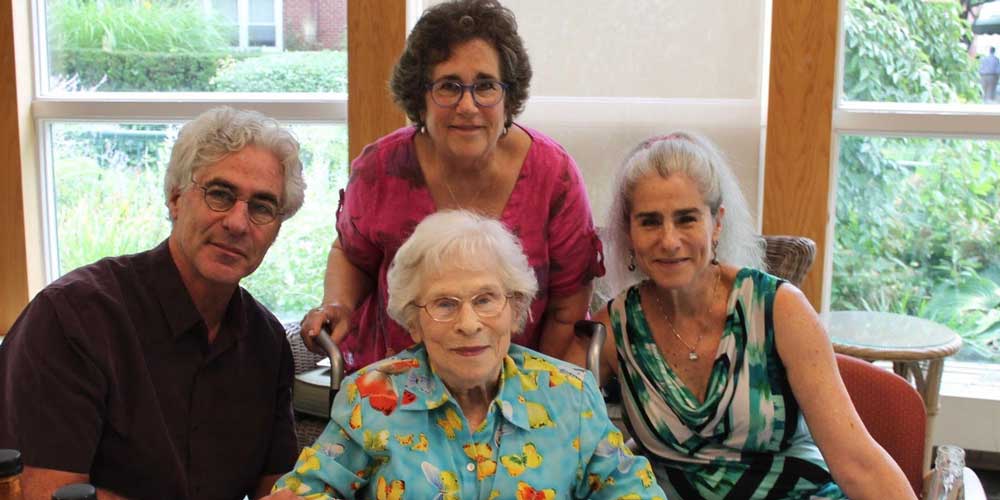
Our mom was proud of being a nurse. She believed in research and valued her participation in the Nurses’ Health Study. So, it seemed fitting to make a gift from her estate to the Brigham and to direct those who wanted to make a tribute gift in her name to do the same.
After a childhood in South Carolina and West Virginia in the 1920s and 30s, Helen Levitan’s innate curiosity and determination drove her to seek a college education in New York City. A graduate of the Mt. Sinai School of Nursing and Columbia Teachers College, Helen served in Europe during World War II in the Army Corps of Nurses, and later worked as a public health nurse in Ithaca and Nassau County, New York.
Her nursing experience inspired Helen’s advocacy of healthy living long before it was common. In the 1960s, when processed foods were becoming commonplace in American households, Helen frequently served fish, fruits, and vegetables to her family. She also quit smoking while many of her peers continued the habit.
Up until her death in January 2018 at age 96, Helen continued to adapt to evolving health guidelines. “Our mom was vigilant about her diet, even in her 90s,” says her daughter, Nancy.
When Helen passed away, her three children—Nancy, Jean, and Richard—wanted to honor her legacy in a way that would be meaningful to her. They directed a gift from their mother’s estate to the Nurses’ Health Study, a longitudinal study led by Brigham and Women’s Hospital (BWH) that Helen participated in for 40 years. Additionally, her children encouraged Helen’s friends to make tribute gifts in her name to the study.
Started in 1976 and continuing today, the study examines risk factors for major chronic diseases in women by monitoring the health and lifestyle of more than 250,000 participants. It has influenced national public health policy, food labeling, and dietary guidelines, and has uncovered groundbreaking findings, such as an increased risk of coronary heart disease and stroke with the consumption of trans fats and a reduced risk with the Mediterranean diet.
“Our mom was proud of being a nurse,” Jean says. “She believed in research and valued her participation in the Nurses’ Health Study. So, it seemed fitting to make a gift from her estate to the Brigham and to direct those who wanted to make a tribute gift in her name to do the same.”
Adds Richard, “I remember when she was 92 years old the study survey didn’t come in the mail, so she asked Jean to reach out to the Brigham and help her submit the survey. This is just one of many examples of her caring and commitment.”
Since BWH started the Nurses’ Health Study, most of its funding has come from the National Institutes of Health (NIH), but financial support has been dwindling.
Francine Grodstein, ScD, the study’s director, says, “It is a struggle for us because the NIH keeps cutting research funding across the board, and we’d like to keep growing. We have the potential to generate tremendous amounts of new information but are limited by funds. The generosity of Helen Levitan and other individuals can help to keep our research going—and we are thankful.”
